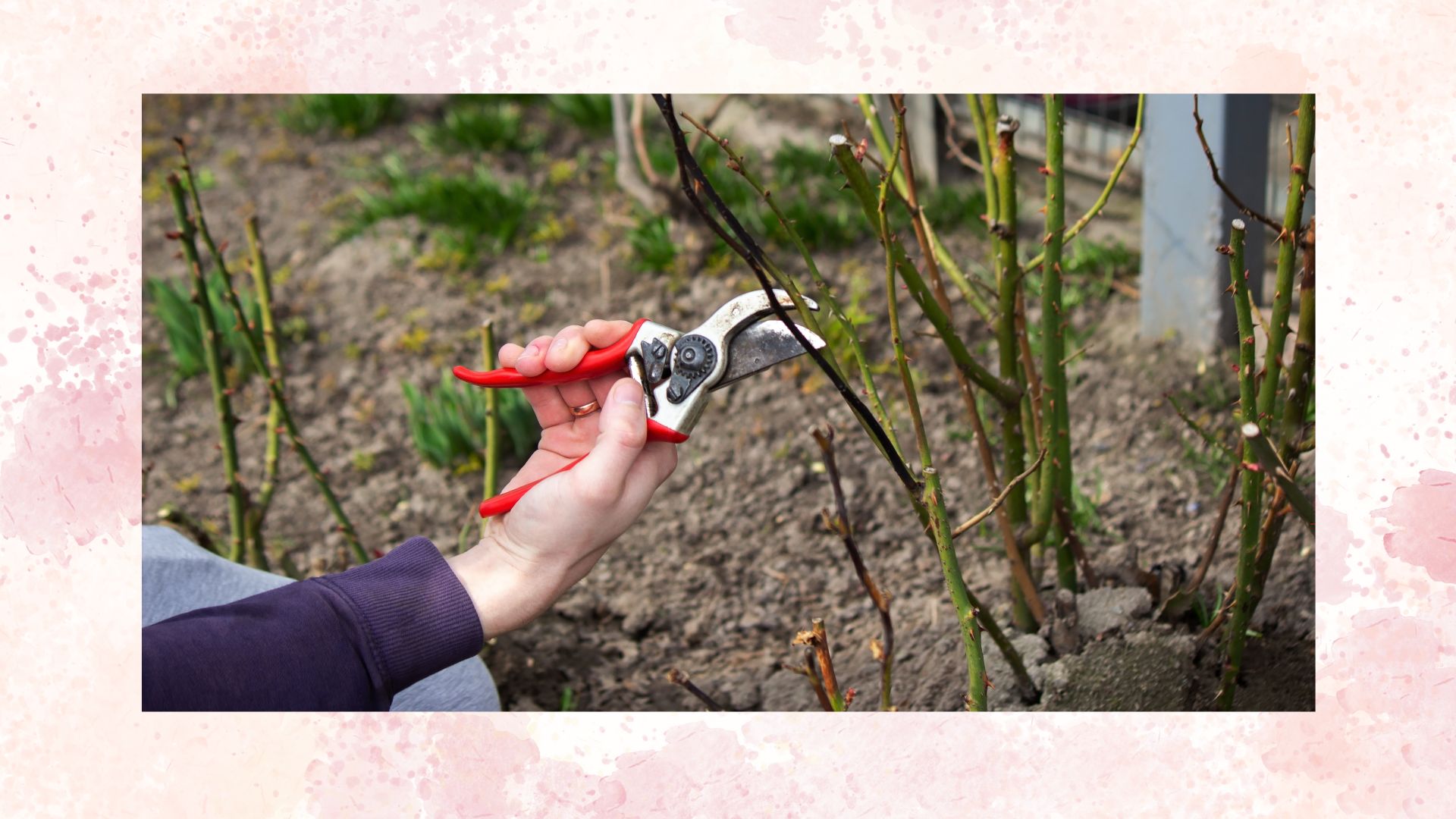
If you want to be surrounded by the sweet aroma of roses all summer, you'll want to take note of our expert advice on when is the perfect time to prune.
The most effective way of keeping your roses flowering for longer in summer is proficient pruning, this means knowing when to prune and how to prune roses most effectively. Pruning too early or forgetting to do it at all can not only stunt your roses' growth but can lead to diseases that could potentially kill the plant.
So, with that in mind, we consulted a team of gardening experts to gauge an ideal timeline for giving rose bushes a timely, healthy chop.
When should you prune roses?
Aside from taking cuttings from roses, knowing how to prune them properly is key to maximising their growth and guaranteeing extra flowers each year. As long as you prune at the right time and in the right way, your plant will thrive each summer.
"The ideal time to prune roses is between the end of winter and early spring, depending on which part of the UK you live in," explains Jamie Shipley, gardening expert and managing director of Hedges Direct. "You want to be pruning when the growing season has started but before blooms start to appear."
He says that this will make it easier to spot healthy, growing stems from those that might be struggling and need to be cut back.
"In warmer areas of the UK, or if the winter is particularly mild, the time to prune roses could be as early as late January. However, in cooler parts, or if the winter has been cold, it’s safer to wait until March," he adds.
No matter where you live, Jamie advises you to keep an eye on the weather forecast and wait until after your last frost date as this will reduce the chance of your rose stems being damaged in the cold.
Shop rose pruning essentials
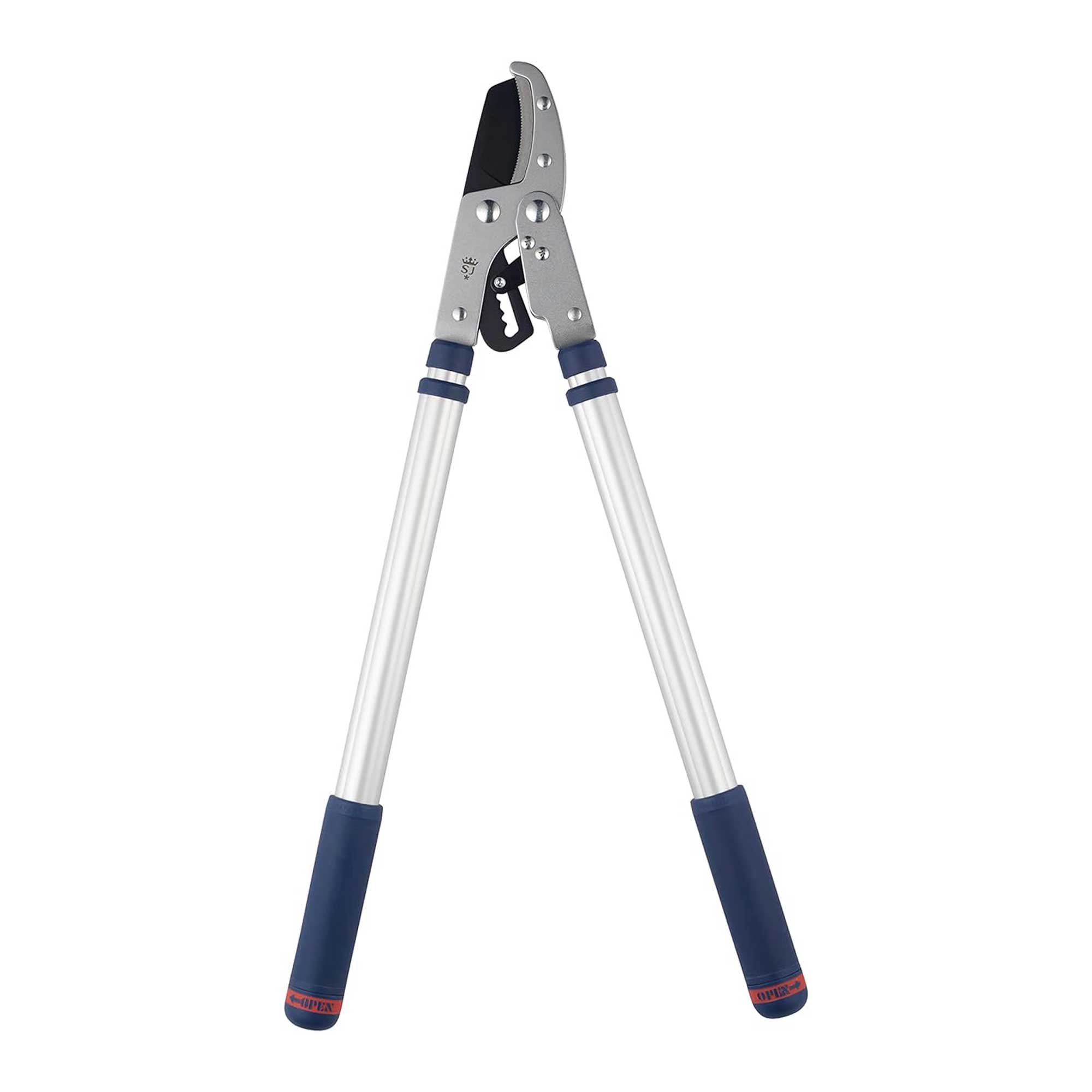
RRP: £32 | Ideal for cutting tougher stems, these loppers have durable, rust-resistant, carbon steel blades and an extendable mechanism. They're a particularly useful tool for taller rose bushes.

RRP: £9.99 | These gardening gloves have been awarded ‘Amazon’s Choice’, and it’s easy to see why – they’re breathable, comfortable, and stylish.
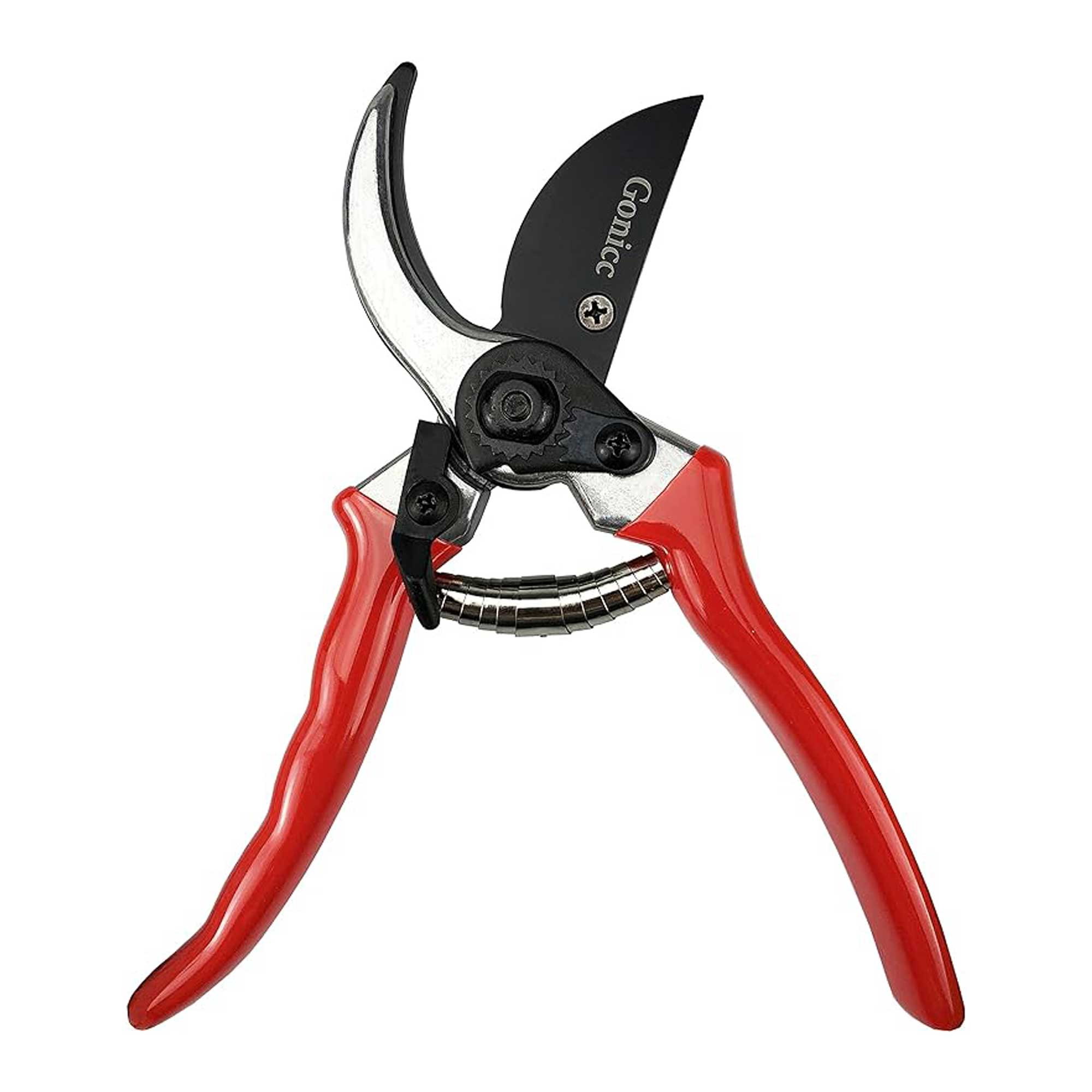
RRP: £13.95 | These popular secateurs have over 8,000 5-star ratings on Amazon. They feature a carbon steel blade and lightweight, non-slip handles, making pruning and deadheading easy.
Is there a specific cut-off time for pruning roses?
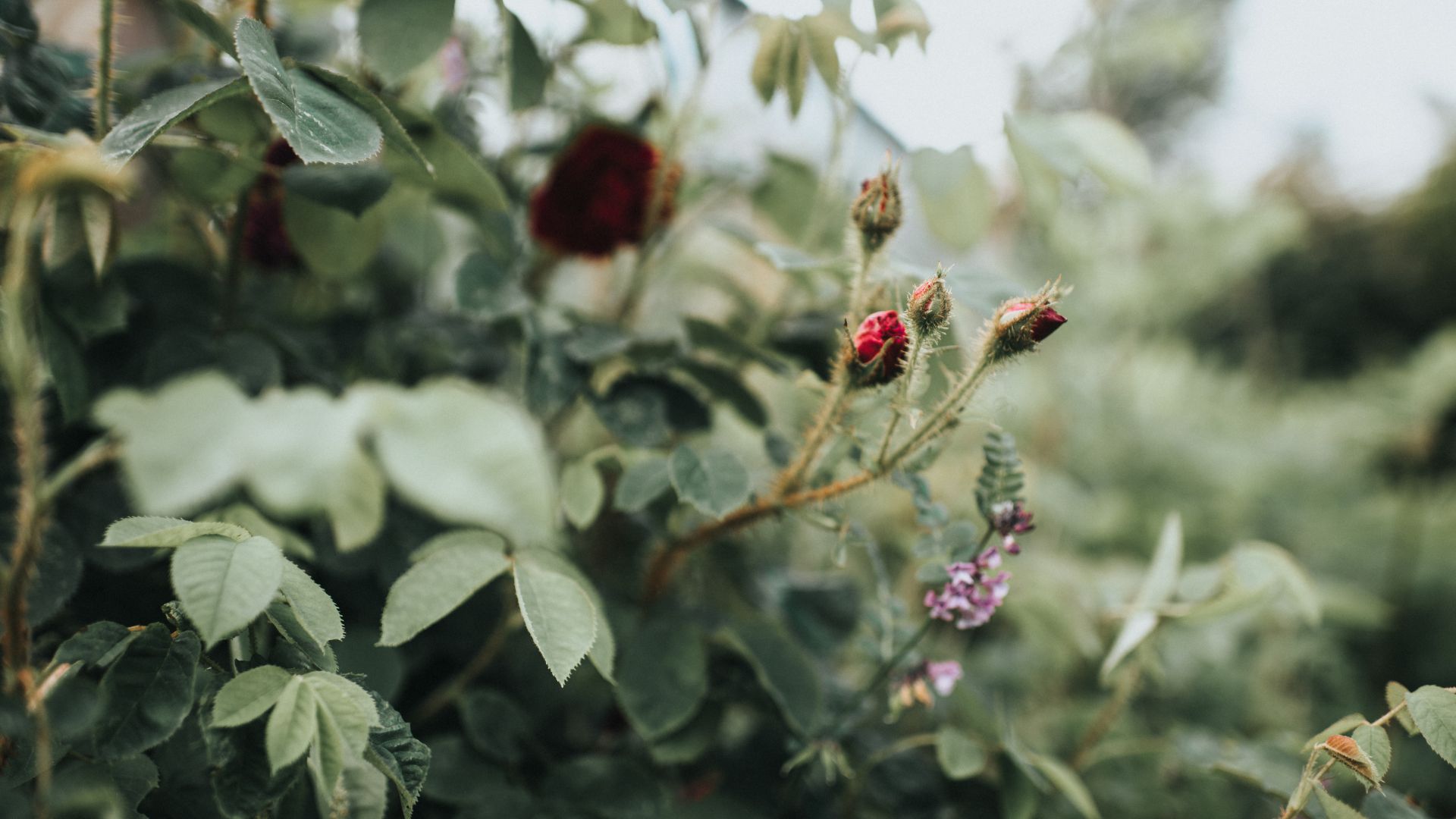
It's no secret that pruning certain plants comes with tight deadlines, from the plants to prune in March to plants you should never prune in summer, it's therefore important to be in the know of what each plant species requires.
"As you head towards spring with warmer and brighter days, the roses will start to develop buds, so more intense pruning or major work should take place in winter," says Andy Tudbury, head gardener at Belvoir Castle. "Although to keep your roses looking fresh and producing more flowers throughout the spring and summer, cut away the dead or past-their-best flowers."
FAQs
What happens if I prune roses too early?
Roses do belong on the list of plants you can prune in January, however, if you cut them back any earlier, you leave the plant vulnerable to freezing temperatures and disease because they are not protected from frosts.
"If you prune roses too early, you are at risk of some dieback below the cuts, or you can run the risk of inviting infection into the plant which should be avoided," explains Andy.
Therefore, it's better to leave your roses unpruned for a month or two, with March being an appropriate time, so you miss the cold weather. Even when you've protected your plants from frost, the cold weather can be surprisingly aggressive.
Is it ok to cut roses right back?
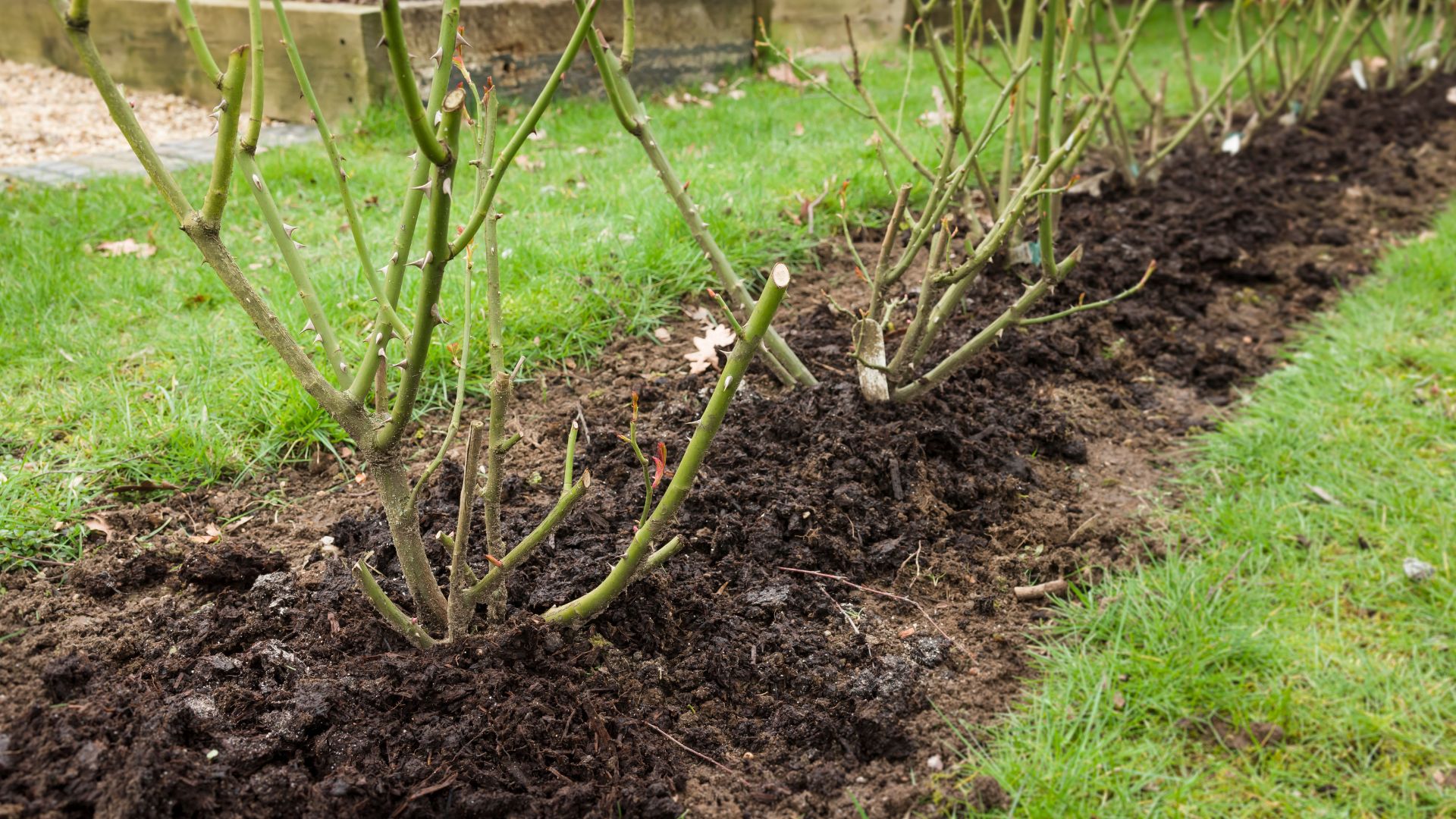
As one of the most alluring plants to liven up a garden, it's natural to be weary about pruning your roses too much, but luckily they are a resilient species.
"Don’t worry too much or overthink pruning – roses are resilient and will put on new growth in spring," says Liam Beddall, Senior Rose Consultant at David Austin Roses. "Of course, the approach to pruning your rose depends on its type and how established it is, but generally speaking you shouldn’t be alarmed if your rose looks a little bare post-prune."
He does say that you should keep in mind that the level of pruning your plant needs depends on how well-established it is.
"Bare root roses don’t require any pruning upon receipt, while younger plants that have flowered for one or two seasons require a light prune, and roses that have bloomed for more than two or three summers can be reduced in size by half," adds Liam.
If you really want to see your roses thrive, using potatoes is a fabulous way to help retain moisture, who knew? Explore our expert's potato hack to grow roses from hardwood cutting to get the most out of this natural nutrient additive and watch your roses look better than ever.







